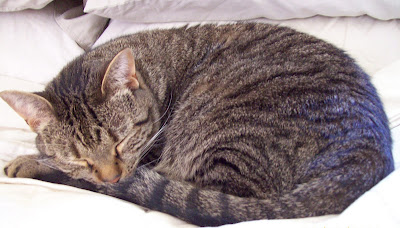I'm all about responsible use of resources. We don't carry debt in our home (aside from mortgage and student loans, and we're diligent with those). We live below our means. If we couldn't pay cash for it, we do without. I'm grateful we've been able to make these choices.
That said, there are instances where people are stuck with 2 bad choices. Do you go into debt or do without the transportation that gets you to work? Do you go into debt or do without medicine that keeps you going?
This new proposed budget gives me a headache. I really, really value fiscal responsibility. But not as much as I value protecting vulnerable members of our society. What is more important to us, as a society?
How did we get to a place where certain people 'deserve' to be wealthy? The argument I hear over and over again is how hard they work for it. That drives me crazy. Why?
Guess who else works hard? Garbage collectors. Certified Nurses Assistants. Construction workers. Warehouse staff. Servers in restaurants. Maintenance workers. Teachers. People who work 3 icky jobs to cover their bills. While I'm at it, why not add social workers?
So that's why tax breaks for the top
echelon of society give me a headache. You can find wealthy people who work harder than many average or low-income people. You can find plenty of low-income people who bust their tails every day while some wealthy people rely on other people's hard work to sit pretty. Comparing someone who was born into a wealthy family and
inherited a position at a big firm to someone who was born into nothing, treated with little dignity, and worked her way into a $9.25/hr job at age 18, who do you think works harder?
There are all kinds of stories from all kinds of backgrounds, and they are all worthy of respect. The problem comes when society tells us the story of the wealthy person is more valuable than the story of the hard working single mom, or the lonely widow on a fixed low income.
There is disgusting behavior across the
socio-economic spectrum. I often hear people decrying the ugliness of welfare fraud, and I agree. If you don't need food stamps, or if you can get by without pulling a big social security check, it would be nice to save those funds for people who truly need them to survive in this culture. We would save a lot of money that way. BUT, how many people in the top 10% income bracket need the luxuries and excess they can afford?
Maybe these painful cuts to programs like heating assistance for low-income citizens or community action programs for struggling neighborhoods wouldn't hurt so bad if I knew everyone was chipping in to keep our society strong. Maybe it wouldn't be so hard to take if I knew we were cutting the fat in our enormous defense fund, or if I knew the only people receiving the assistance that remains were the people who truly needed it.
Maybe the cuts wouldn't be so bad if I saw the best of human behavior, across the socioeconomic spectrum. Maybe people struggling to survive can band together and support each other, although I certainly know that is easier said than done. Maybe people with large incomes who believe in charity over government assistance can fully engage themselves in giving--and not just in charity, but in true social change that unites our society instead of dividing us into haves and have
nots. Maybe we can work together across economic lines to build a more just society.
Maybe. But for now, we're stuck with 2 bad choices: an unsustainable budget that tries to care for our struggling citizens, or a slightly more sustainable budget that leaves people even more vulnerable.
Maybe we can find a better way.







 where can I go to get unbiased info? Any thoughts?
where can I go to get unbiased info? Any thoughts?


